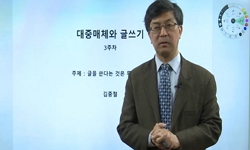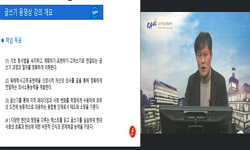신체의 훈육을 통해서 정신의 고양을 지향하는 수양은 근대 자본주의를 통과하면서 일종의 문화상품을 통해서 제도적으로 재생산되기에 이른다. 상품화란 수양의 필요성이 생겨나는 맥락...
http://chineseinput.net/에서 pinyin(병음)방식으로 중국어를 변환할 수 있습니다.
변환된 중국어를 복사하여 사용하시면 됩니다.
- 中文 을 입력하시려면 zhongwen을 입력하시고 space를누르시면됩니다.
- 北京 을 입력하시려면 beijing을 입력하시고 space를 누르시면 됩니다.
https://www.riss.kr/link?id=A82658439
- 저자
- 발행기관
- 학술지명
- 권호사항
-
발행연도
2007
-
작성언어
Korean
-
주제어
수양 ; 근대미학 ; 테크네 ; 말하는 주체 ; 글쓰기 ; cultivation ; modern aesthetics ; techne ; speaking subject ; criture
-
등재정보
KCI등재
-
자료형태
학술저널
- 발행기관 URL
-
수록면
272-300(29쪽)
-
KCI 피인용횟수
1
- 제공처
- 소장기관
-
0
상세조회 -
0
다운로드
부가정보
국문 초록 (Abstract)
신체의 훈육을 통해서 정신의 고양을 지향하는 수양은 근대 자본주의를 통과하면서 일종의 문화상품을 통해서 제도적으로 재생산되기에 이른다. 상품화란 수양의 필요성이 생겨나는 맥락에서 수양 그 자체를 분리시켜 자율적인 것으로 단장하여 시장의 필요에 맞게 다른 신체들과 접합하거나 해체하기 쉽게 만드는 것을 의미한다. 근대미학은 이러한 상업화를 암묵적으로 지원해왔다. 그러나 이중적으로 근대미학은 이러한 상업화된 수양을 지양하는 실천적, 비판적 역할을 수행해왔는데, 고대 희랍의 테크네(techne) 개념 이래로 예술의 이러한 원초적 기능은 정신적 육체적 결핍을 메우려는 실존적 회복운동으로서의 수양 개념에 부합된다. 이와 같은 근대 예술의 긍정적 선취는 기호학과 후기-구조주의의 글쓰기(챕criture) 개념으로 계승된다. 여기서 무의 인식으로 떨어지는 근대 주체의 미적 아이러니는 글쓰기에서 자기를 낮추고 자기를 무화시키면서 생성되는 ‘말하는 주체’로 거듭난다. 심신관계와 관련하여 말하는 주체는 마음의 신체에 대한 전적인 우위성, 신체의 대상화에 근거하지 않으려 오히려 이러한 신체를 긍정적으로 재개념화하여 신체를 통해서 자신을 실현하는 실천과 다르지 않으며 이는 상품화에 저항하는 근원적 의미의 삶을 환기시켜준다. 실천을 통해서 매 순간 직면하게 되는 타자와의 대면 속에서 자기(self)를 낮추는 법을 체득하는 것, 이는 근대 미학에서 현저한 자기의 드러냄으로서의 표현 개념의 한계를 극복하면서 그토록 위대한 자기가 결국 타인과의 관계 속에서 기인한 것임을 인식하고 그 원초적 지점으로 되돌아가기를 촉구하는 겸허한 수양이다.
다국어 초록 (Multilingual Abstract)
The cultivation aims at the enhancement of the spirit by the training of the body. It reaches being reproduced systematically as the culture commodity in the capitalist market as entering the modern era. The commercialization of the cultivation means ...
The cultivation aims at the enhancement of the spirit by the training of the body. It reaches being reproduced systematically as the culture commodity in the capitalist market as entering the modern era. The commercialization of the cultivation means to make it get isolated from the original context where it seats and make it easy to merge and devide itself into other bodies following to the market's needs. The modern aesthetics supported this commercialization of the cultivation covertly. But in other plane, it took a role of transcending this trend paradoxically, this role was started in the concept of techn챕 in Greek which was the existential movement to make up for the corporeal and spiritual lacks. This positive achievement in the modern aesthetics was inherited by the concept of 챕criture in the post-structualism. The ironical subject in modern aesthetics which falls into the acknowledgement of the nothing becomes 'speaking subject', which debases itself and is regenerated by making itself nothing. On concern with the mind-body relationship, speaking subject isn't based on the objectification of the body, the priority of the mind, rather reconceptualizes the body positively, and gets to know that corporeal practices actualize the mind. It can remind us of the fundamental meaning of the life which can resist the commercialization. That's to experience the way for self to be humble whenever it confronts with others. So that's the moderate training which overcomes the limitation of 'expression' concept in the modern aesthetics as the revelation of the self, and returns to the primitive point in which the self derives from the relation with others.
목차 (Table of Contents)
- 요약문
- 1. 들어가는 말: 우리 시대, 수양은 어떻게 가능한가?
- 2. 근대 미학 비판과 테크네(techne) 개념
- 3. 언어학적 전회와 말하는 주체
- 4. 자기를 낮추는 기술로서의 글쓰기
- 요약문
- 1. 들어가는 말: 우리 시대, 수양은 어떻게 가능한가?
- 2. 근대 미학 비판과 테크네(techne) 개념
- 3. 언어학적 전회와 말하는 주체
- 4. 자기를 낮추는 기술로서의 글쓰기
- 5. 결론
- 참고문헌
- Abstract
참고문헌 (Reference)
1 제인스, 줄리언, "의식의 기원" 한길사, 서울 1990
2 "예술, 아이러니한 슬픔과 웃음의 문턱 ― 예술의 구원가능성에 대한 키에르케고어적 이해" 대동철학회 2005
3 Tatarkiwitz, "예술 개념의 역사: 테크네에서 아방가르드까지" 열화당, 서울 1990
4 "심신이원론에서 선험적 신체일원론으로: 멘느 드 비랑에서 메를로-퐁티까지" 대동철학회 2006
5 장문정, "시원신화의 해체" 대동철학회 1988
6 손택, 수전, "사진에 관하여" 서울 2005
7 헤겔, "법철학Ⅱ, 141f" 지식산업사, 서울 1989
8 월프, 자네트, "미학과 예술 사회학" 이론과 실천, 서울 1988
9 이글턴, 테리, "미학 사상" 한신문화사 1995
10 "메를로-뽕띠의 살의 기호학" 한국학술정보, 서울 2005
1 제인스, 줄리언, "의식의 기원" 한길사, 서울 1990
2 "예술, 아이러니한 슬픔과 웃음의 문턱 ― 예술의 구원가능성에 대한 키에르케고어적 이해" 대동철학회 2005
3 Tatarkiwitz, "예술 개념의 역사: 테크네에서 아방가르드까지" 열화당, 서울 1990
4 "심신이원론에서 선험적 신체일원론으로: 멘느 드 비랑에서 메를로-퐁티까지" 대동철학회 2006
5 장문정, "시원신화의 해체" 대동철학회 1988
6 손택, 수전, "사진에 관하여" 서울 2005
7 헤겔, "법철학Ⅱ, 141f" 지식산업사, 서울 1989
8 월프, 자네트, "미학과 예술 사회학" 이론과 실천, 서울 1988
9 이글턴, 테리, "미학 사상" 한신문화사 1995
10 "메를로-뽕띠의 살의 기호학" 한국학술정보, 서울 2005
11 Kierkegaard, S, "The concept of Irony: With Continual Reference to Socrates" Princeton Univ. Press 1989
12 Jameson, F, "The Political Unconscious: Narrative as a Socially Symbolic Act" Ithaca and London 1981
13 Rorty, Richard, "The Linguistic Turn: Recent Essays in Philosophical Method" University of Chicago Press 1967
14 Bichat, X, "Recherches physiologiques de la vie et la mort" Flammarion, Paris 1994
15 Merleau-Ponty, "Phénoménologie de la perception" Gallimard, Paris 1945
16 Peirce, "Philosophical writings of Peirce" Dover, New York 1955
17 Althusser, L, "Lenin and philosophy and other essays" Monthly Review Press;백의, 서울 1971
18 "Le visible et l'invisible" Gallimard, Paris 1964
19 "La prose de monde" Gallimard, Paris 1969
20 Foucault, "La pensée dehors" fata morgana 1986
21 "L'écriture et la différance" Seuil, Paris 1967
22 Behler, Ernst, "Irony and the Discourse of Modernity = 아이러니와 모더니티 담론" 동문선, 서울 1990
23 Hong, H., "Fear and Trembling" Princeton Univ., Princeton 1983
24 Benveniste, Émile, "Essais de linguistique générale" Minuit 1963
25 Mies, M, "Ecofeminism" Fernwood Publications, Halifax, Nova Scotia, London & New Jersey 1993
26 Derrida, J, "De la grammatology" Minuit, Paris 1967
27 Mumford, L, "Art and Technics" Columbia Univ., New York 1952
동일학술지(권/호) 다른 논문
-
- 대동철학회
- 정영식
- 2007
- KCI등재
-
- 대동철학회
- 임윤정
- 2007
- KCI등재
-
- 대동철학회
- 류지석
- 2007
- KCI등재
-
- 대동철학회
- 심재권
- 2007
- KCI등재
분석정보
인용정보 인용지수 설명보기
학술지 이력
| 연월일 | 이력구분 | 이력상세 | 등재구분 |
|---|---|---|---|
| 2027 | 평가예정 | 재인증평가 신청대상 (재인증) | |
| 2021-01-01 | 평가 | 등재학술지 유지 (재인증) |  |
| 2018-01-01 | 평가 | 등재학술지 선정 (계속평가) |  |
| 2017-12-01 | 평가 | 등재후보로 하락 (계속평가) |  |
| 2013-01-01 | 평가 | 등재 1차 FAIL (등재유지) |  |
| 2010-01-01 | 평가 | 등재학술지 유지 (등재유지) |  |
| 2008-01-01 | 평가 | 등재학술지 유지 (등재유지) |  |
| 2005-01-01 | 평가 | 등재학술지 선정 (등재후보2차) |  |
| 2004-01-01 | 평가 | 등재후보 1차 PASS (등재후보1차) |  |
| 2002-01-01 | 평가 | 등재후보학술지 선정 (신규평가) |  |
학술지 인용정보
| 기준연도 | WOS-KCI 통합IF(2년) | KCIF(2년) | KCIF(3년) |
|---|---|---|---|
| 2016 | 0.45 | 0.45 | 0.47 |
| KCIF(4년) | KCIF(5년) | 중심성지수(3년) | 즉시성지수 |
| 0.47 | 0.53 | 1.021 | 0.19 |




 KCI
KCI eArticle
eArticle







